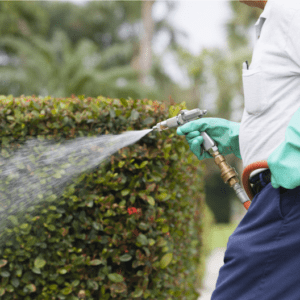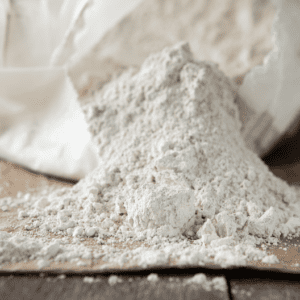Let’s face it, sometimes our efforts to create balance and avoid a hoard of hungry pests from destroying our plants and compromising all of our hard work simply doesn’t work out as planned. In this case, you might consider calling in the big guns with chemical pesticides to eradicate the problem, but this can cause longer term effects that turn a small problem into a much larger one. Why? Aside from the fact that chemical pesticides don’t discriminate between good bugs and bad, using poison on your lovingly grown organic produce kind of defeats the purpose of taking the time to grow your own food. If you’re looking for more organic friendly methods for controlling your pest problem, we’ve got some great methods for you to try!
Natural Pest Control Methods
The Universal Solvent
Believe it or not, sometimes your pest predicament can be solved with one of the most abundant substances on the planet: Water. For pests like whiteflies, aphids and mealy bugs, sometimes all you need is a blast of H2O in order to send them to off to greener pastures. The process is simple, for minor to medium infestations, get a hose nozzle with a jet stream setting and blast those little buggers into smithereens. Of course you’ll want to consider the sensitivity of the plant to avoid causing any damage, so be sure to use common sense here and be gentle with your flowers.

Give Yourself A Hand
Okay, okay, this one might not be for everyone. If you’ve got a small infestation, sometimes it’s easier to throw on some gloves and give those bugs a little pinch or simply remove them. If you have chickens, you can offer the little morsels to them for some much appreciated protein.
Neem Oil
The neem tree is considered a miracle plant. This fast growing tree is renowned for its properties and used in homeopathic remedies as an antifungal, antibacterial, antiviral, sedative and skin aid. The tender shoots and flower are eaten as a veggie in India and the center of traditional recipes. They also use the dried leaves in cupboards to prevent insects from eating clothes, rice and more. The fruits and seeds are a valuable source of neem oil, and it is this useful substance that is a valuable tool for pest control. This natural alternative to synthetic pesticides is produced from seeds that have been ground to a powder and soaked in water overnight to be sprayed on the plants.
You can find Neem Oil at your local garden supplier or online. The substance doesn’t actually kill insects directly, but acts as an anti-feedant, repellant and egg laying deterrent. After several applications over a few days, the insects start and die and are unable to reproduce to carry on the destruction. As with any concentrate, but sure to follow the instructions to avoid any adverse effects.
Diatomaceous Earth
Diatomaceous earth is the fossilized remains of diatoms—a type of micro-algae. The fossils are microscopic in size and extremely sharp, an attribute which makes them uniquely valuable in the fight against pests. Unlike neem oil which makes the environment unlivable for pests, diatomaceous earth causes physical damage to insects. The microscopic fossils act like sharp daggers, getting under the exoskeleton of insects and fatally wounding them. It also absorbs lipids on the waxy outer layer of insects, reducing their ability to retain water. Look for non-heat treated, food grade DE.

The apply, you can simply dust the DE onto affected areas when they’re dry. Additionally, you can also create a mixture of DE and water that can be sprayed onto affected areas. As the DE makes contact with the insects, it will begin to work, getting under their exoskeletons and causing damage. After an hour, spray off the plant to knock off any dead insects and then reapply the DE the following day. If you keep chickens, DE is a great addition to include in their dusting materials as it will help them destroy any mites they may have.
Ladybugs
We’ve discussed the value of beneficial insects and the value of attracting them before, but if all else fails, you can buy them. You can order hundreds or thousands of ladybugs from regional distributors to help in the war against pests. Release them at dawn, preferably after it rains in the affected areas, and they’ll get to work. Do your best to get regional or local varieties to avoid introducing a foreign variety to your local area. When in doubt, contact your distributor for more information!
There are many natural remedies to ridding your garden of unwanted pests, but these we’ve laid out are great places to start before taking more extreme measures like culling. Be sure to rotate your crops yearly to the best of your abilities and keep an eye on pest damage daily to nip any problems in the bud before they become bigger issues. Got a remedy that works for you? Share it with us in the comments below!